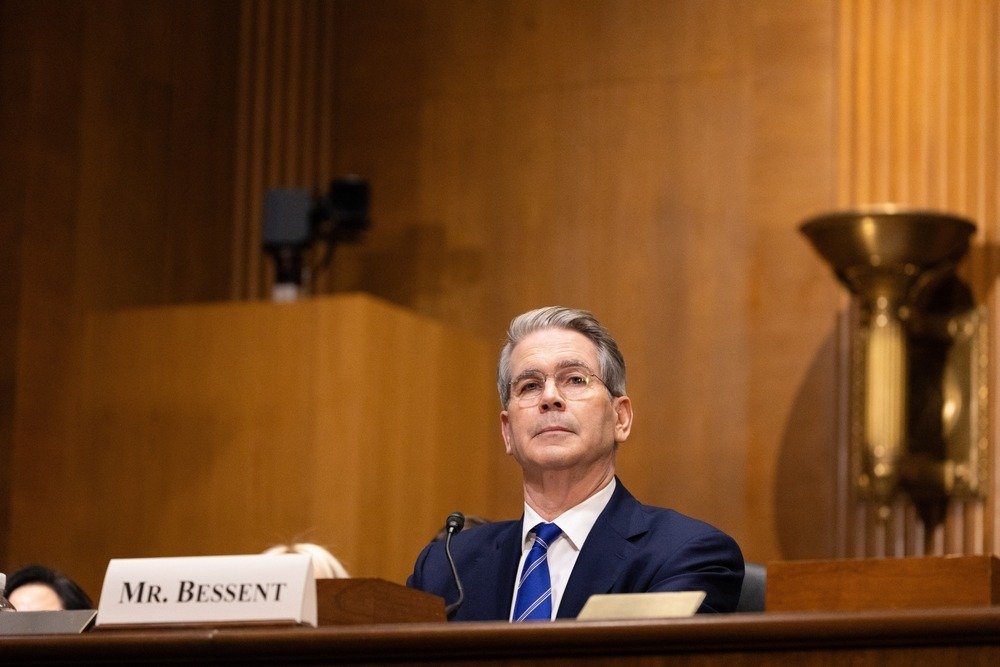Scott Bessent’s financial path is more than just a collection of riches; it is an intriguing demonstration of timing, global positioning, and strategy. Bessent was born in 1962 in Conway, South Carolina, and at first, he wanted to pursue a career in journalism. However, he made a stunning turnabout and entered the competitive world of finance after losing out on the top editor position at the Yale Daily News. That change turned out to be very profitable.

Bessent established a foundation that was both varied and remarkably flexible by early alignment with renowned investor Jim Rogers and subsequent employment at companies such as Kynikos Associates and Soros Fund Management. He specifically oversaw Soros’ London office during the infamous 1992 British pound shortfall, which remains a benchmark for audacity in financial history. Bessent collaborated with Stanley Druckenmiller and George Soros to carry out the deal that brought Soros more than $1 billion. Bessent’s reputation as a top financial strategist was cemented by that pivotal moment.
Scott Bessent – Financial & Career Overview
| Attribute | Information |
|---|---|
| Full Name | Scott Kenneth Homer Bessent |
| Birth Year | 1962 |
| Birthplace | Conway, South Carolina, USA |
| Education | Yale University, B.A. in Political Science, 1984 |
| Current Role | 79th U.S. Secretary of the Treasury (since January 2025) |
| Previous Roles | CIO of Soros Fund Management, CEO of Key Square Group |
| Notable Accomplishment | Participated in 1992 shorting of British pound with Soros & Druckenmiller |
| Net Worth (2024 estimate) | At least $521 million (per U.S. Office of Government Ethics) |
| Government Salary | $250,600 per year (Treasury Secretary) |
| Key Holdings (2024) | SPDR S&P 500 ETF, Invesco ETFs, U.S. Treasuries, Chinese Yuan, Japanese Yen |
| Reference | U.S. Office of Government Ethics |
He took control of one of the most significant financial companies of its era in 2011 after rejoining Soros Fund Management as Chief Investment Officer. He then established Key Square Group in 2015 with a sizeable $2 billion donation from Soros, demonstrating the exceptional degree of credibility and trust he had gained.
Bessent’s net worth as of late 2024 was at least $521 million based on his disclosed assets, but it is generally assumed that his actual financial situation is far higher. According to the U.S. Office of Government Ethics, he owned more than $50 million in a number of important investment vehicles, such as the Invesco QQQ, the Invesco S&P 500 Equal Weight ETF, and the SPDR S&P 500 ETF Trust. He also had sizable holdings in foreign currencies like the Japanese yen and Chinese yuan, as well as U.S. Treasury bills. A particularly creative strategy that emphasizes both liquidity and hedging is demonstrated by the diversification across industries and regions.
Bessent became one of the few hedge fund veterans to hold such a significant government position when he was appointed the 79th U.S. Secretary of the Treasury by President Trump in January 2025. Proficient in interpreting macroeconomic patterns, he pledged to employ people who are aware of current financial markets rather than depending exclusively on conventional economists. With this change, the federal financial system and hedge fund responsiveness demonstrated a markedly better synergy.
Bessent’s dedication seems to be based more on influence and impact than financial gain, even though he only receives a meager $250,600 a year as Treasury Secretary—a sum that is significantly less than his previous pay in the private sector. Being the most prominent LGBTQ+ person in Trump’s administration, his prominence has wider societal implications. It complicates the public conversation on inclusivity by bringing up issues of representation in historically conservative settings.
The duties of Bessent go well beyond financial statements. Everyday priorities include debt management, financial institution regulation, economic policy development, and economic resilience. These initiatives are not unique. Through taxation, interest rates, or inflation control, they affect common people and have an effect on international markets. Notably, he plans to carry out some of Trump’s tax reforms, which will surely be criticized as well as praised.
Bessent has stayed dedicated to education throughout his career. This enthusiasm is demonstrated by his tenure as an adjunct professor at Yale. His classes clearly examined financial panic, booms, and busts. Few academics could match the insights he brought to the classroom from his decades of practical experience. According to numerous accounts, his teaching style was incredibly transparent and infused with real-world relevance.
In his investment strategy, real estate also plays a minor but significant role. Bessent had properties in the Bahamas and North Carolina before entering the public sector. Despite being opulent, these choices also demonstrate a thoughtful diversification that aligns with his investment philosophies. His art and antique collections, which are said to be worth over $1 million, point to a refined taste and a respect for material legacy possessions.
However, since he joined the government, his ability to manage his portfolio has been limited by ethical regulations. He has removed himself from any positions where a conflict of interest could arise. Even though some might see this as a drawback, it shows how he views public accountability and how prepared he is to forgo personal benefit in order to uphold institutional trust. Even though they are not always apparent to the general public, such acts subtly uphold democratic norms.
Public service frequently attracts close scrutiny, especially in positions of economic leadership. However, Bessent’s experience demonstrates how intelligence from the private sector can be easily redirected for national objectives. His background as a former titan of the hedge fund industry gives him flexibility in handling financial upheaval and reacting to market shocks. His choices have already begun to significantly impact currency policy and trust in treasury securities in recent months.
